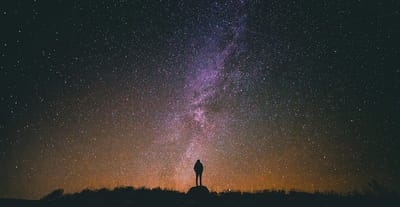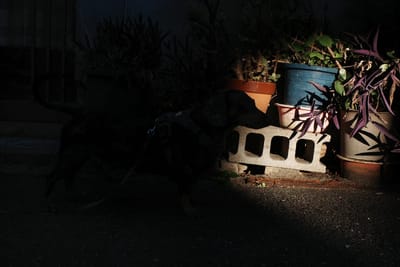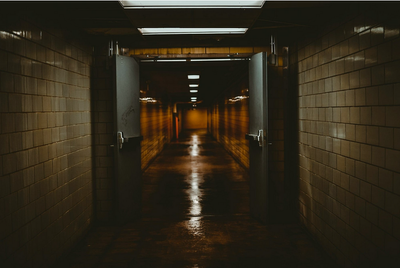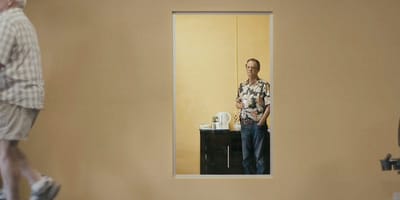What’s the Point of Life?
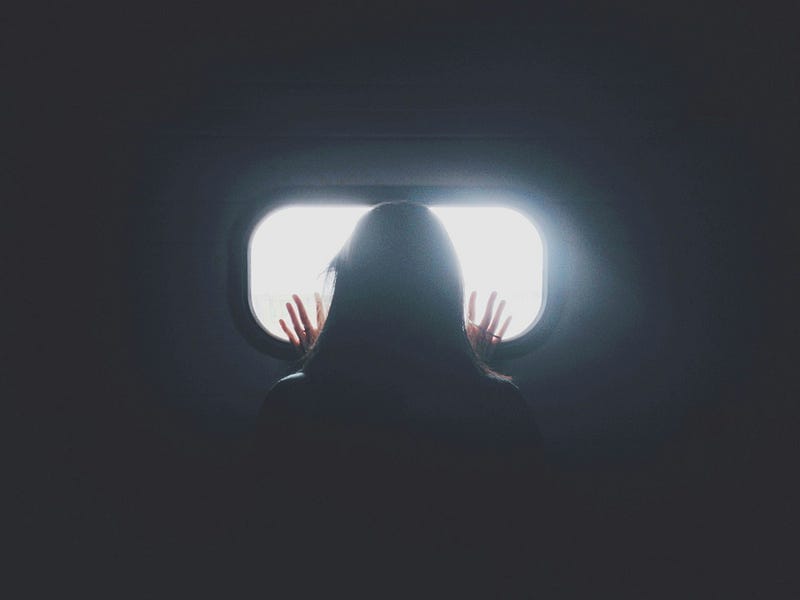
What is the point of life in the nature of this reality, the universe, and our place within it?
Agh!
Too big. Too bold. Too tired. And way too late. Can we move on to the next question?
Nope.
Let me to share the responses from two of my fondest teachers (whom I’ve never had the privilege of meeting and never will.)
Victor Frankl
The first one is from Viktor Frankl, an Austrian neurologist, psychiatrist, and Holocaust survivor.
“Ultimately, man should not ask what the meaning of his life is, but rather must recognize that it is he who is asked. In a word, each man is questioned by life; and he can only answer to life by answering for his own life; to life he can only respond by being responsible.”― Viktor E. Frankl.
His viewpoint is instead of us asking the question, it should be the life that asks us,
“So, what are you here for?”
Essentially, the answer to life’s question defines the meaning of it.
Joseph Campbell
The second response is from Joseph Campbell, an American scholar, writer, and lecturer known for his work in mythology. Interestingly, he looked at life by exploring universal themes, symbols, and narratives found in myths and stories from cultures around the world.
“The goal of life is to make your heartbeat match the beat of the universe, to match your nature with Nature.” — Joseph Campbell.
The central theme of his work is influenced by Jung’s concept of archetypes and the collective unconscious (universal tales we all can relate to no matter background, race, or place in history), and he later developed his own theories and framework for understanding mythology.
Myths reflect universal human experiences and provide guidance in navigating life’s challenges. According to Campbell’s study of myths;
a meaningful life involves a profound sense of vitality and passion.
Remember Odysseus, who answers the call of life and undergoes a long and arduous journey filled with challenges, ordeals, trials, and temptations? Driven by his desire to reunite with his family, and reclaim his rightful home as the king, he perseveres the the hardship of all for the purpose of his true meaning.
The Odyssey profoundly reflects the idea of finding vitality and purpose in life; this is why all of us — regardless of our background, race, or place in history, can relate to these universal human experiences of perseverance, resilience, and the quest for meaning.
This is evident in many iconic films such as Star Wars, The Lord of the Rings, The Lion King, and The Matrix, all of which follow the classic Hero’s Journey narrative structure.
In fact, all the great stories ever told, follow this classic Hero’s Journey arc — including all of our life stories.

Mine
In my twenties and most of my thirties, I worked full-time as an architect and project manager on diverse projects. It was a demanding job, and I was deeply lost in the relentless pursuit of professional success for the wrong reason. At that time, I believed that my sense of self-worth was tightly bound to my net worth and social recognition.
In that period of twelve years of working hard, I looked at it as a ‘stage’ for me to perform my best and strive for excellence, aiming to reach the pinnacle of my field and to prove (mostly to my parents) that I wasn’t a failure — but an ass-kicking, late bloomer.
I wasn’t passionate about it, nor did I remotely feel alive.
It was a stage performance, a feeding ground.
I asked myself, a lot, for years, “Why did I like to work that hard?”
The answer was that I didn’t ‘like’ to do it. Then I asked,
“What is that thing you will choose to spend all your time doing, day and night immersed in it with absolute joy?”
“Is it the day job you’re in now?”
“Would you still do it if you don’t get paid?”
“Would you still be pouring your heart and soul into it sixty-seventy hours a week like you’re doing now if it’ wasn’t for the responsibilities of life to make ends meet?”
No.
Hell no. To all the questions.
So why the heck did I do it?
Like many of us, my endless cycle of trying harder and harder stemmed from a sense of lack. From a place of scarcity in my heart, an insecurity too, perhaps. It wasn’t the meaning of what I do that drove me to do it.
These notions of success, validation, and the unceasing desire for recognition had taken root in my psyche. They formed the core of my relentless drive, a drive spurred on not only by my ambitions but also by the expectations of those in my life, particularly my family.
It was as if I existed in a surreal world, where the quest for external validation and unending approval loomed larger than life.
No meaning. No vitality. No passion. Just the ego seeking to fill an empty void.
This brings us back to the topic we began this story with.
Viktor Frankl coined the term “existential vacuum”, and it’s the key concept in his existential psychology.
The existential vacuum refers to a profound sense of emptiness, purposelessness, and a lack of meaning in one’s life. It is a condition characterized by a deep and pervasive feeling of inner emptiness, as if life lacks significance or purpose.
As humans, we have a fundamental need for meaning and purpose in our lives. When this need is not fulfilled, it can result in a sense of existential vacuum (the empty void I felt) that can lead to feelings of despair, apathy, and even psychological distress.
Frankl observed that individuals who experience this vacuum often struggle with a sense of futility and may engage in behaviors or pursuits that provide — only temporary, relief from this existential emptiness.
Compulsive shopping? Binging comfort food, alcohol, social media, constantly planning a vacation, or even a short getaway at any chance given — just to get away?
We have all been guilty of it in some ways.
Be dedicated to work, be the best in the field, be at the top of top companies, work all the time, keep busy, recover on Sunday if I can, and live for the excitement in anticipation of the long overdue vacations to escape this cycle — same story, most of us.
“What’s wrong with doing that anyway?” One might ask.
I would reframe this question to, “Does it make me suffer? And if you’re aware of the potential suffering it causes, then ask again, “What can I do to diminish the impact?” “What options do I have not to stay in here?”
I was trapped in that vacuum once because I didn’t know better. Had I had the same level of self-awareness as I do now, I would have done it differently — I would have tried harder.
It’s not just about work-life balance; it’s about noticing the transient nature of life, being aware of who my true Self is, and facing the feeling of not being alive to find a way out of it instead of numbing it.
Flourishing as a person, not as what people would recognize, is the first key.
Find your passion, do what you love, or at least try to integrate it into your day-to-day life. It may sound like a cliche now, but one day, you will know how it feels when you find something you love (that much.)
I’m not trying to moralize the idea of ‘just do what you love and don’t worry about the money’. I‘m here to share my experience of having found this privilege to live doing what I love in a fortunate place where making ends meet is not yet my biggest concern.
This is why I’m still writing. Even when it feels as tedious and painful, and lonely as hell at times — which is the core of any writing process, I still do it.
I do it because it fuels me and makes me feel alive; it’s what propels me into each new day with boundless energy, feeling enthusiastic to live each blissful day.
Even with no financial compensation for my effort, or recognition of any kind, and with or without an audience. I still will do it.
It’s love.
It’s passion.
And it’s immensely rewarding.
The Epilogue
To be at my desk at sunrise, with my dog, Wallie, lying peacefully on his bed next to me, is a gift. Seeing the mundane objects; stacks of notebooks and journals, fountain pens, gives me joy. Immersing in the faint music in the background, a cup of good lungo in the morning, and malty Assam tea with milk in the afternoon, reading about something, or reflecting on life, and writing about it — is a kind of my perfect day. Not every day, but most days.
I can do this over and over again, and I have, for the most part of my years since turning forty (six years ago.)
Finding joy and meaning in the simplest, and smallest things is truly a gift of life that I’m most grateful for.
And you too, will find it — within you, when you silence the busyness of life to allow the aliveness of your existence to manifest.
I hope you find clarity in this simple awareness.
Now, imagine yourself being free of any kind of responsibility and free to do anything you want without worrying about the bills to pay.
What would you be doing now?
Do you try — every day, to move toward that goal?
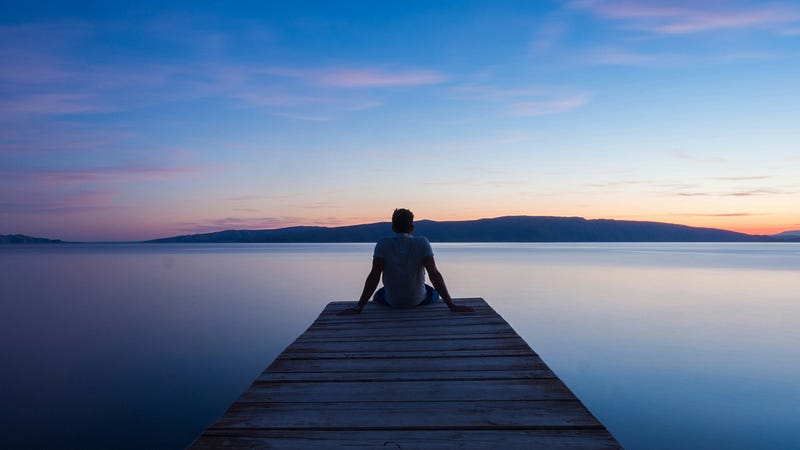
Thank you for spending time with me today.
Reference Reading
“Man’s Search for Meaning” by Viktor E. Frankl:
Frankl, V. E. (2006). Man’s search for meaning (any edition). Beacon Press.
“The Hero with a Thousand Faces” by Joseph Campbell:
Campbell, J. (2008). The hero with a thousand faces (any edition). New World Library.

